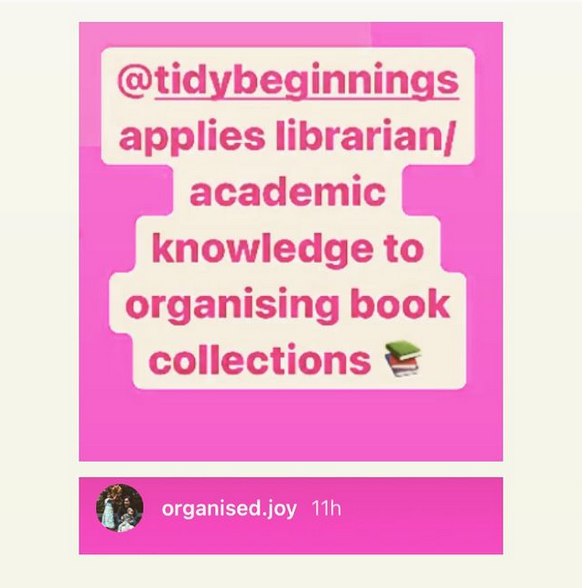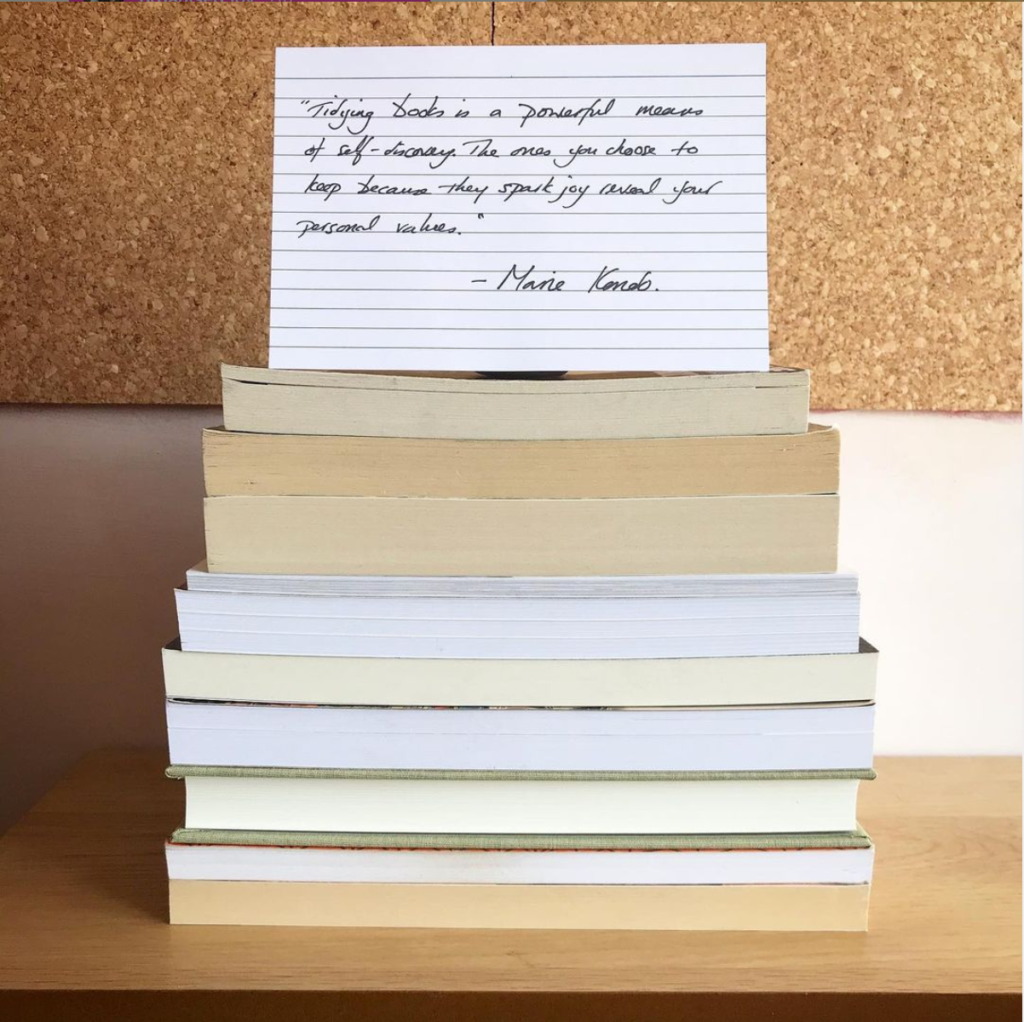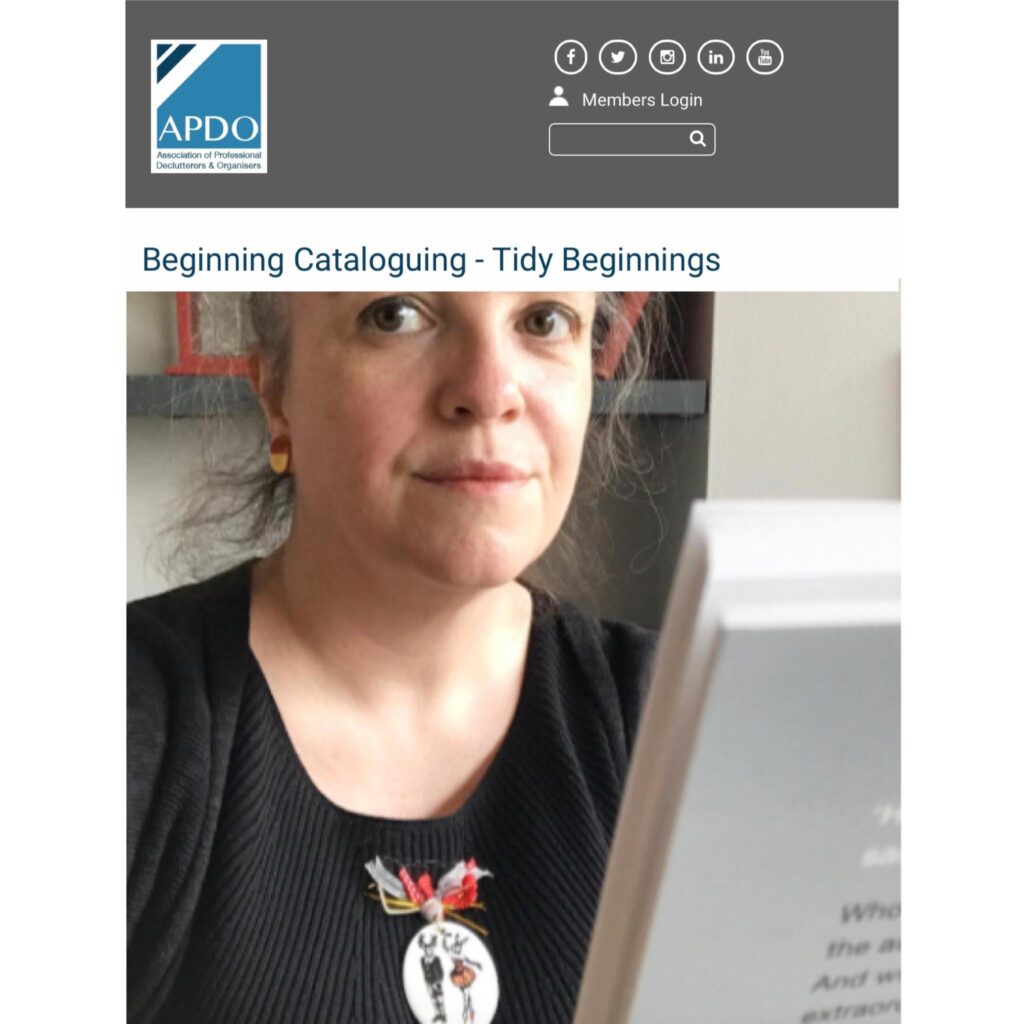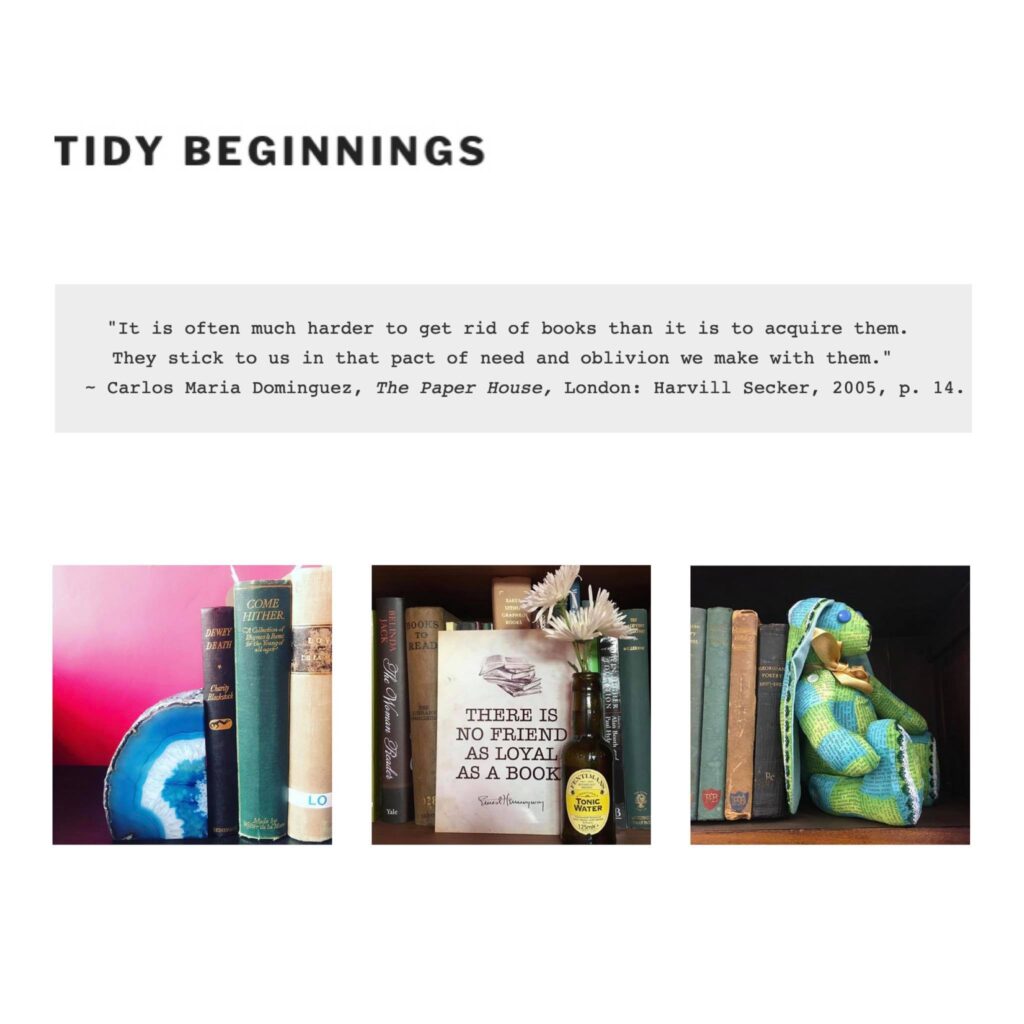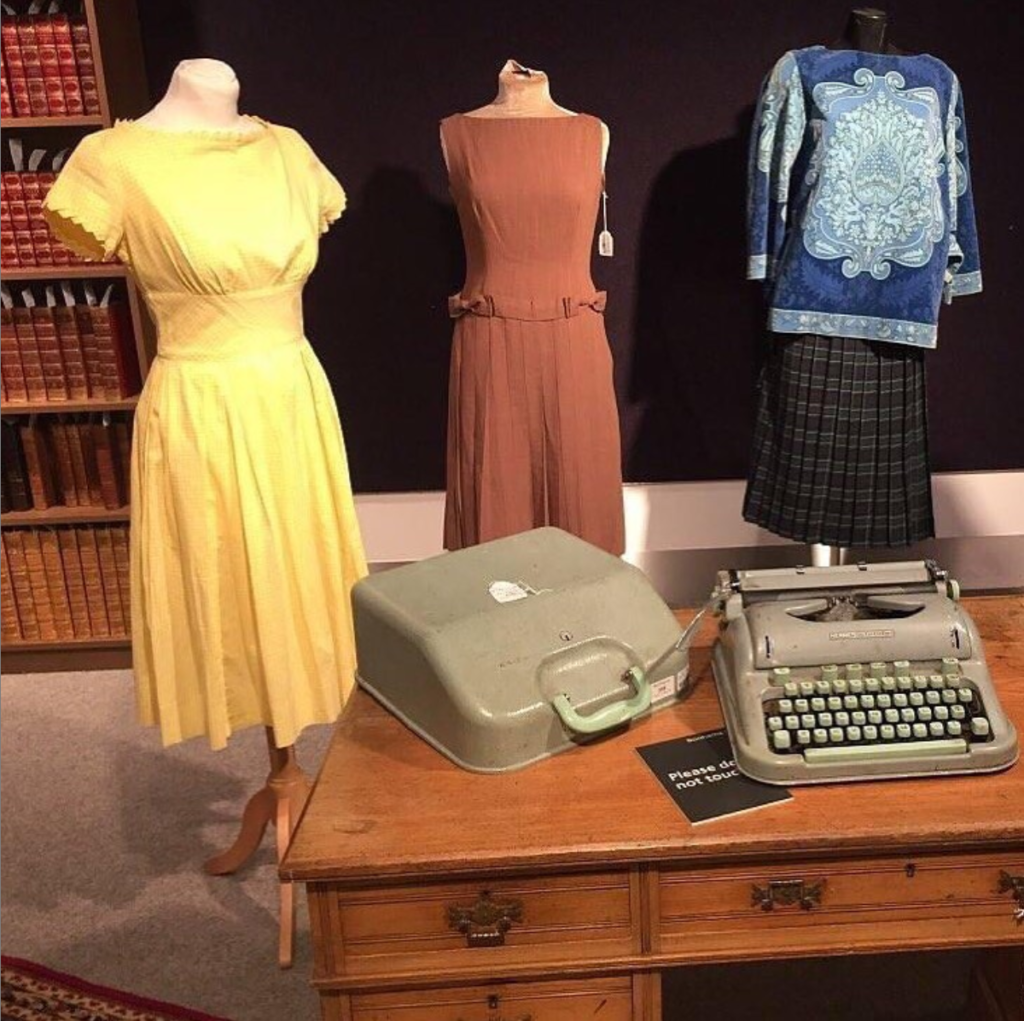
Last week was Spring Clearing Week, an annual campaign run by the Association of Professional Declutterers and Organisers (APDO) to raise awareness of the need to Spring clear before we Spring clean.
This year, the theme was Making Clutter Count, and, since books are – of course – never clutter, I chose to focus on clothes and textile recycling. I was really inspired by the RSA’s new report Turning the Tide: Public Attitudes on Plastics and Fast Fashion, which found a gap between our desire to reduce the use of plastics and petrochemicals in our clothes and our awareness of how much we are actually consuming. It calls for “new measures to turn the tide, including a tax on virgin plastics used in clothing; a ban on marketing petrochemical-derived clothing; and a commission to prepare for the future of fashion.”
I also drew heavily on Orsola de Castro’s recent book Loved Clothes Last: How the Joy of Rewearing and Repairing Your Clothes Can Be a Revolutionary Act (Penguin Life, 2021). De Castro has been at the forefront of the slow fashion movement since the 1990s. Her book is full of hints and tips on how to “mend, repair and rewear” your clothes, as well as facts and figures on textile recycling, and advice on how to declutter your wardrobe more mindfully.
Preparing for the Week
As well as reading these two publications, on the build-up to Spring Clearing Week I tried out various apps to see whether I wanted to recommend them to people on Instagram. In the end, on Friday I chose to highlight @thredup, a survey you complete to find out how sustainable your wardrobe choices are; @goodonyou_app which provides information on how fair clothing brands are; and @30_wears, which allows you to photograph and diarise your use of each of your clothes. Apparently most women wear most garments only seven times before disposal, so, as its name suggests, the app aims to encourage them to up that to thirty wears.
I also did a lot of surfing the web (including APDO’s own recycling and donations hub for members) to try to find out which charities were still able to collect items for donation despite the Covid restrictions. It’s really important to do due diligence on charity bag schemes, as some collections made door to door actually give very little to the named charity. Some collectors are more conscientious than others about trying to have clothes reworn before looking to have them scrapped for recycling. And, clearly, the best route for anything containing plastics and petrochemicals is for it to be used to the point of destruction before being scrapped and repurposed.
During the Week
The APDO colleagues who run our Twitter and Instagram accounts both primed members in advance to be ready to take part in their #APDOClutterChallenge (links to Twitter – the Insta challenge was completed through Stories which is, of course, more ephemeral). Colleagues shared a range of resources, some of which were new to me. My favourites (in no particular order) are:
- Alzheimer Society’s jewellery donations scheme
- Turtle Doves (who recycle cashmere)
- The Crisp Packet Project (which makes blankets from cleaned, empty crisp packets)
- Love Grace UK (which gives handbags filled with toiletries to women in refuges, and is a favourite charity of local APDO colleague Jo Forde)
The APDO blog shared several articles throughout the week, including one highlighting Caroline Rogers’s recently published research into clutter and wellbeing; Linda Cavellini’s interview of upcycling and sustainability expert Lynne Lambourne; and two posts bringing together advice from a range of APDO members – ‘Decluttering During the Pandemic‘ and ‘10 Ways to Donate Your Decluttered Items That You May Not Have Thought Of!‘ I was lucky enough to have a couple of tips included in the second one – using Recycle Now to find local centres for recycling clothes and The Great Diary Project for family diaries.
Overall
This was the first APDO campaign week to take place since I became a verified member, and it was a great learning experience. I’m sure that some of my clients picked up tips directly from following the #springclearingweek hashtag on Twitter and Instagram, and all my clients will benefit from my own increased knowledge on how to make their clutter count. It was also a fantastic way to gain an insight into the things that my colleagues are most passionate about clearing out and organising – there are so many different people looking for help with so many areas of their houses that it’s really useful to know who has expertise in particular fields. Of course, the APDO Directory lets anyone search by particular specialisms, but there’s niche and then there’s niche … you can search for photo organisers, but not for librarians or archivists, for example.
Now I’m looking forward to National Organising Week in November … and, from a CPD point of view, to the APDO Conference next month.
Image: Photo taken by Daichi Ishikawa at Bonhams Plath Hughes Private View for the London Bibliophiles in 2018.
